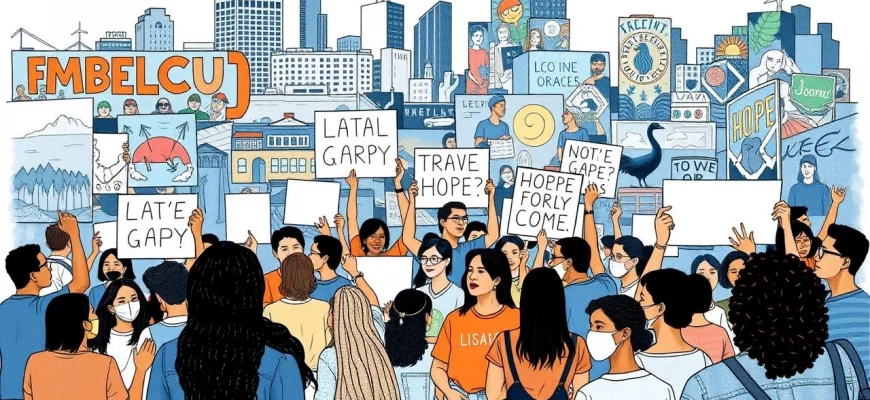If you were moved by the powerful storytelling and emotional depth of 'Samaritan: The Mitch Snyder Story' (1986), you might be looking for similar films or shows that explore themes of activism, compassion, and social justice. This article highlights 10 movies and TV series that share the same spirit of resilience and human connection, offering you a curated list of compelling narratives to dive into next.
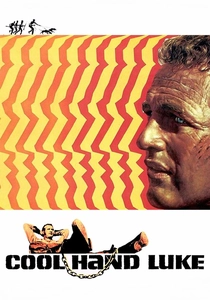
Cool Hand Luke (1967)
Description: Mirrors 'Samaritan' in its depiction of a nonconformist challenging the oppressive prison system. Both films celebrate the indomitable human spirit and critique institutional dehumanization, with charismatic leads who inspire those around them.
Fact: Paul Newman's iconic performance includes the famous 'failure to communicate' line. The egg-eating contest scene was real—Newman ate 50 eggs over several takes. The film's themes of rebellion resonated deeply during the 1960s counterculture movement.
 Watch Now
Watch Now 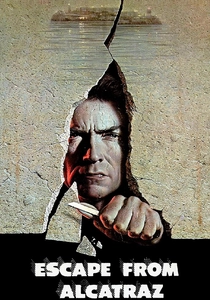
Escape from Alcatraz (1979)
Description: While more of a thriller, it shares with 'Samaritan' a gritty, realistic portrayal of prison life and the inmates' desire for freedom against all odds. Both films underscore the psychological toll of incarceration.
Fact: Clint Eastwood stars in this dramatization of the infamous 1962 Alcatraz escape. The real-life escape remains unsolved, adding to the film's mystique. Directed by Don Siegel, known for his taut, no-nonsense filmmaking style.
 Watch Now
Watch Now 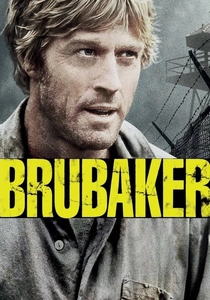
Brubaker (1980)
Description: Directly comparable to 'Samaritan' as both films follow reformers exposing corruption and abuse within prisons. Each protagonist risks everything to improve conditions, offering a stark critique of the penal system.
Fact: Robert Redford stars as a warden who goes undercover as an inmate. Inspired by the real-life experiences of Tom Murton in Arkansas prisons. The film's gritty realism was groundbreaking for its time.
 Watch Now
Watch Now 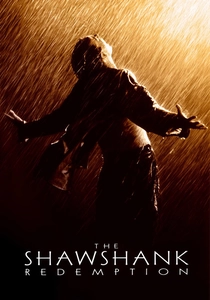
The Shawshank Redemption (1994)
Description: Similar to 'Samaritan: The Mitch Snyder Story' in its exploration of the human spirit's resilience within the confines of the prison system. Both films delve into themes of hope, redemption, and the struggle against systemic injustice, albeit from different perspectives—one focusing on an inmate's journey and the other on an activist's fight for prisoners' rights.
Fact: Based on Stephen King's novella 'Rita Hayworth and Shawshank Redemption'. Initially a box office disappointment but gained massive popularity through home video and TV broadcasts. Frequently ranked as one of the greatest films of all time in audience polls.
 Watch Now
Watch Now 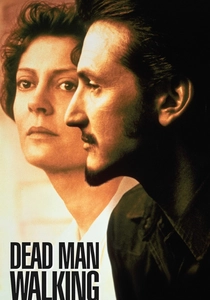
Dead Man Walking (1995)
Description: Like 'Samaritan', this film confronts the ethical dilemmas surrounding capital punishment, focusing on the relationship between a death row inmate and a spiritual advisor. Both stories emphasize compassion and the possibility of redemption, even in the darkest circumstances.
Fact: Susan Sarandon won an Oscar for her role as Sister Helen Prejean. Based on Prejean's memoir of the same name. The film sparked widespread debate about the death penalty in the U.S.
 Watch Now
Watch Now 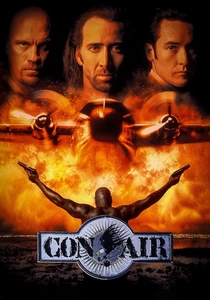
Con Air (1997)
Description: While more action-oriented, it echoes 'Samaritan' in its portrayal of prisoners' humanity amidst chaos. Both films, in their own ways, question who the real criminals are—the inmates or the system that fails them.
Fact: Nicolas Cage's long hair was his own, grown for the role. The film's over-the-top action and one-liners have made it a cult favorite. Features an ensemble cast including John Cusack and John Malkovich.
 Watch Now
Watch Now 
American History X (1998)
Description: Though more violent, it parallels 'Samaritan' in examining redemption and the potential for change, even in those deeply entrenched in hate or crime. Both films present stark, unflinching looks at their subjects' transformations.
Fact: Edward Norton's intense preparation included gaining 30 pounds of muscle. The director, Tony Kaye, disowned the final cut due to creative differences. The curb-stomping scene remains one of the most shocking in cinema history.
 Watch Now
Watch Now 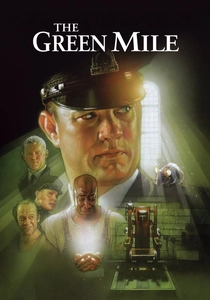
The Green Mile (1999)
Description: Shares with 'Samaritan' a deep dive into the moral complexities of the death penalty and the prison system, highlighting the humanity of those incarcerated. Both films challenge viewers to question the justice system and the nature of punishment versus rehabilitation.
Fact: Another Stephen King adaptation, originally published as a serial novel. Features one of Michael Clarke Duncan's most memorable performances. The film's supernatural elements add a unique layer to its prison drama foundation.
 Watch Now
Watch Now 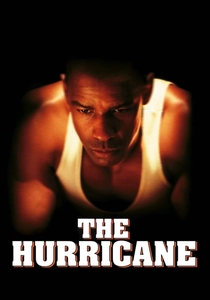
The Hurricane (1999)
Description: Like 'Samaritan', this biopic highlights the fight against wrongful imprisonment and systemic racism, showcasing the power of advocacy and the media in achieving justice. Both films are rooted in real-life struggles against a flawed system.
Fact: Denzel Washington's portrayal of Rubin 'Hurricane' Carter earned him an Oscar nomination. Bob Dylan's song 'Hurricane' helped bring attention to Carter's case. The film controversially altered some historical details for dramatic effect.
 Watch Now
Watch Now 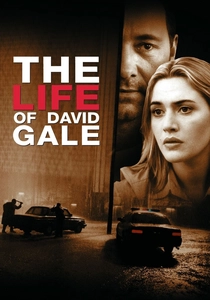
The Life of David Gale (2003)
Description: Shares with 'Samaritan' a focus on capital punishment and the moral ambiguities surrounding it. Both films feature protagonists deeply committed to their causes, willing to sacrifice everything for their beliefs.
Fact: Kevin Spacey plays a death penalty opponent on death row. The film's twist ending polarized audiences and critics. Alan Parker directed this controversial take on justice and activism.
 Watch Now
Watch Now 
